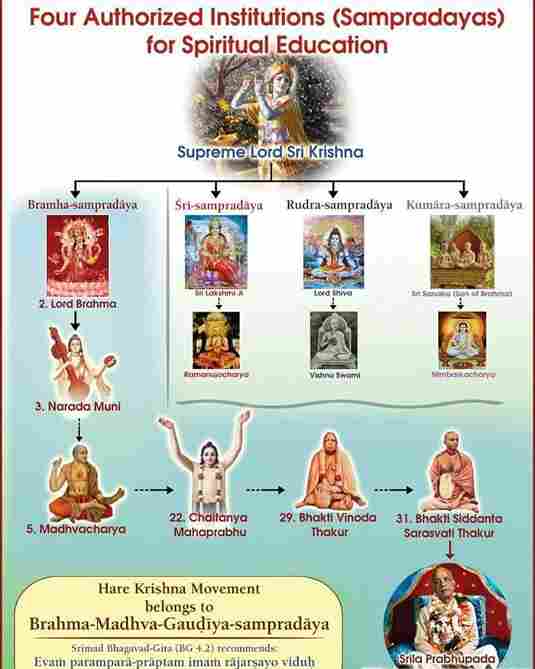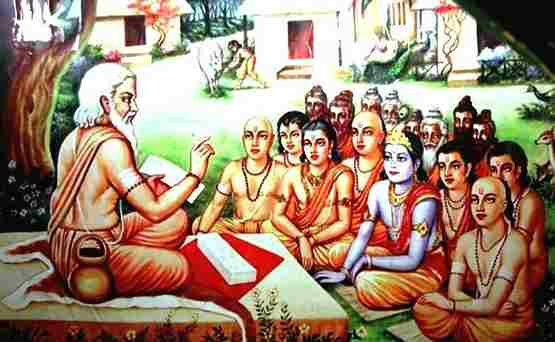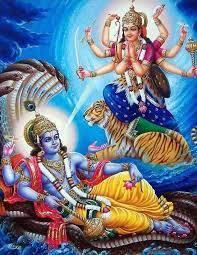In Bhagavad-gita Lord Krishna refers to bhagavata-dharma as the most confidential religious principle (sarva-guhyatamam, guhyad guhyataram). Krishna says to Arjuna, “Because you are My very dear friend, I am explaining to you the most confidential religion.” Sarva-dharman parityajya mam ekam saranam vraja: “Give up all other duties and surrender unto Me.” One may ask, “If this principle is very rarely understood, what is the use of it?” In answer, Yamaraja states herein that this religious principle is understandable if one follows the parampara system of Lord Brahma, Lord Shiva, the four Kumaras and the other standard authorities. There are four lines of disciplic succession: one from Lord Brahma, one from Lord Shiva, one from Laksmi, the goddess of fortune, and one from the Kumaras. The disciplic succession from Lord Brahma is called the Brahma-sampradaya, the succession from Lord Shiva (Sambhu) is called the Rudra-sampradaya, the one from the goddess of fortune, Laksmiji, is called the Sri-sampradaya, and the one from the Kumaras is called the Kumara-sampradaya. One must take shelter of one of these four sampradayas in order to understand the most confidential religious system. In the Padma Purana it is said, sampradaya-vihina ye mantras te nisphala matah: if one does not follow the four recognized disciplic successions, his mantra or initiation is useless. In the present day there are many apasampradayas, or sampradayas which are not bona fide, which have no link to authorities like Lord Brahma, Lord Shiva, the Kumaras or Laksmi. People are misguided by such sampradayas. The sastras say that being initiated in such a sampradaya is a useless waste of time, for it will never enable one to understand the real religious principles.
Source: A.C. Bhaktivedanta Swami Prabhupada (2014 edition), “Srimad Bhagavatam”, Sixth Canto, Chapter 03 – Text 21





















Leave A Comment